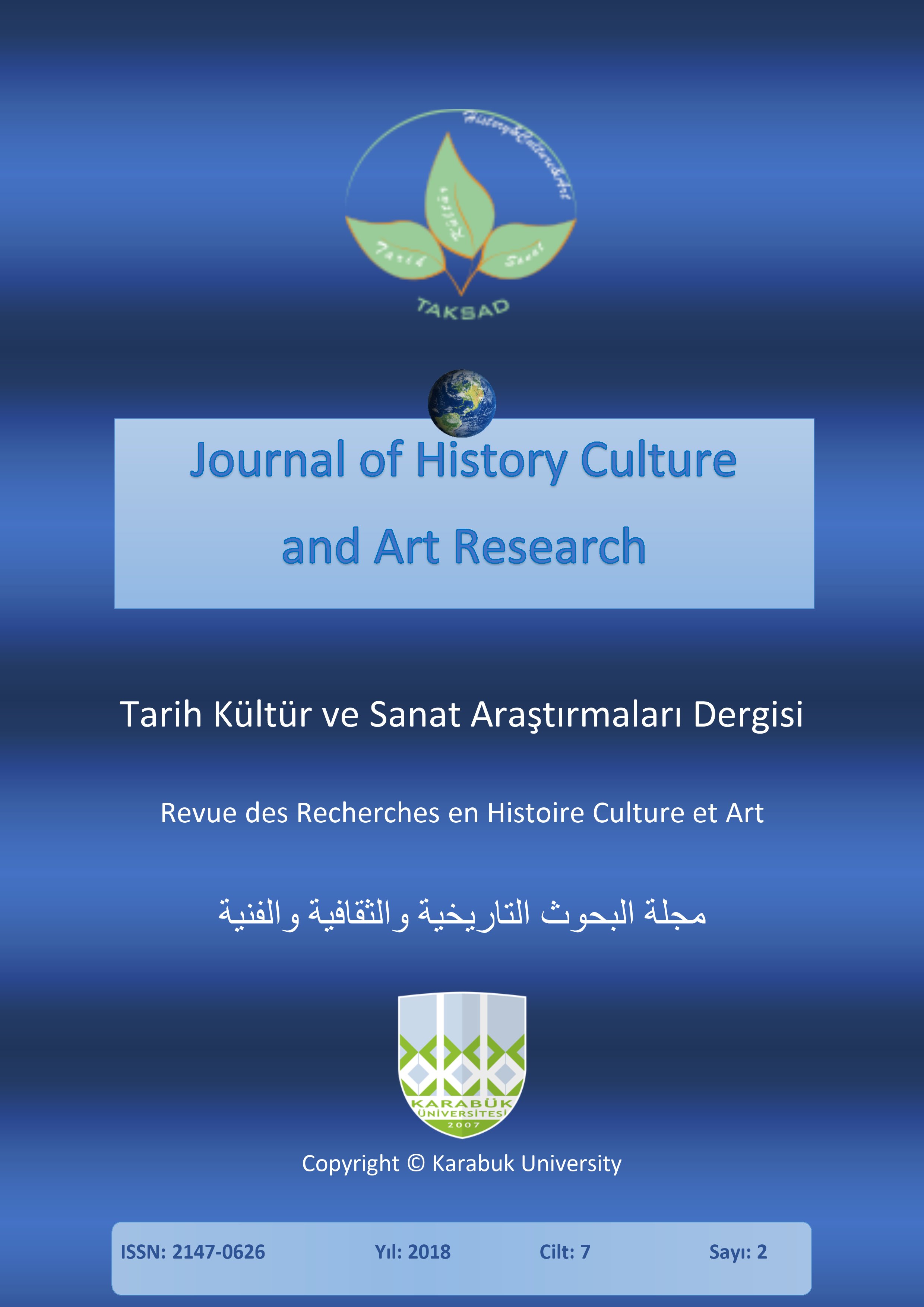Muhammad Iqbal and Division of Sub-continent
DOI:
https://doi.org/10.7596/taksad.v7i2.1516Anahtar Kelimeler:
Muhammad Iqbal- Pakistan- Muslims- British- Hindus- Sub-continent- Practical politics- Independence.Özet
Muhammad Iqbal was not a professional politician but at certain stages of his life he showed a keen interest in the politics of the sub-continent. Even in the area, he handled many complex problems with remarkable insight and left a permanent mark on the events which molded the destiny of the million. His participation in the political issues of the day was based on sincerely and conviction. He cherished peace and orders more than anything else in life. In order to understand the various aspects of Iqbal’s political career, it is essential to make a brief review of the contemporary political scene, when Iqbal turned his attention towards the political and constitutional problems which were ultimately to shape the future of the Indo-Pakistan subcontinent.
Referanslar
Ahemd, A. (1968). Na'i Tashkil (2nd ed.). Lahore: Global Publishers.
Ahmed, A. (1964). A Studies in Islamic Culture in the Indian Environment. Oxford: Clarendon Press.
Ahmed, A. (1964). Studies in Islamic Culture in the Indian Environment. Oxford.
Ali, P. S. (1978). The Political Philosophy of Iqbal (2nd ed.). Lahore: United Publishers.
Ambastha, N. K. (2016). Political Thought of Muhhamad Iqbal. Dialogue, p. 100-117.
Batalvi, A. H. (1961). Iqbal Kai Akhri Do Sal. Karachi, p. 219.
Durand, S. H. (1913). Life of the Rt. Hon. Sir Alfred Comyn Lyall. London.
Hassan (1968). The main philosophical idea in the writings of Muhammad Iqbal (1877 - 1938). Durham: Durham University.
Hassan, P. F. (1967). The Political Philosophy of Iqbal. Lahore: Publishers united Ltd.
Iqram, S. M. (1961). History of Muslim Civilization in India and Pakistan. Lahore.
Lovett, S. H. (1964). "Education and Mission to 1858" in Cambridge History of India. Delhi.
M. Saiyid, M. (1962). Muhammad Ali Jinnah: A Political Study. Lahore.
Majumdar, R. C. (1962). History of the Freedom Movement in India, p. 324.
Malick, A. R. (1968). "British Educational Policy". in History of the Freedom Movement,. Karachi: Pakistan Historical Society.
Malik, H. (1963). Muslim Nationalism in Pakistan and India. Washington, p. 201.
Martineaue, J. (1979). The Life and Correspondence of Sir Bartle Frere. (Vols. I). London.
Mir, M. (2006). Iqbal. Lahore: Iqbal Academy Pakistan.
Misra, B. B. (1961). The Indian Middle Classes. London.
Qureshi, D. I. (1952). The Muslim Community of the Indo-Pakistan Sub-Continent. Haque.
Qureshi, W. (1983). Selections from the Iqbal Review. Iqbal Academy Pakistan.
Sevea (2012). Development of the Nation. In The Political Philosophy of Muhammad Iqbal: Islam and Nationalism in Late Colonial India . Cambridge: Cambridge University Press.
Shamloo (1948). Speeches and Statements of Iqbal. Lahore.
Sultan, A. (April 16, 2012). Is Allama Iqbalrelevant in today's politics? Karachi: Tribune Newspaper.
The Oxford Encyclopaedia of the Modern Islamic World. (1995). Vol. 2, p. 222.
Vahid, S. A. (1988). Studies in Iqbal, p. 268.
Waheed-uz-Zaman, D. & Akhtar, D. (1993). Islam in South Asia. Islamabad: National Institute of Historical and Cultural Resarch Islamabad.
Waqar (2016). Constitutional Evalution in British India: A Study of Iqbal's Contribution. Islamabad: Ph.D. Thesis.
İndir
Yayınlanmış
Nasıl Atıf Yapılır
Sayı
Bölüm
Lisans
Tarih Kültür ve Sanat Araştırmaları Dergisi'nde yayımlanan tüm çalışmalar Creative Commons 4.0 CC-BY lisansı ile lisanslanmıştır.
Bunları yapmakta özgürsünüz:
- Bu eseri her boyut ve formatta paylaşabilir — kopyalayabilir ve çoğaltabilirsiniz.
- Materyalden Adapte et — karıştır, aktar ve eserin üzerine inşa et
- her türlü amaç için, ticari amaç da dahil
Alttaki şartlar altında:
Atıf — uygun bilgiyi, lisansa linki, and ve değişiklik yapıldıysa değişiklik bilgisinivermelisiniz. Sizi veya kullanımınızı lisansörün onayladığı bilgisini içermemek kaydıyla, size uygun şekilde bu işlemleri gerçekleştirebilirsiniz.
AynıLisanslaPaylaş — Eğer materyali karıştırdınızsa, aktardınızsa ya da materyalin üzerine çalıştınızsa, ancak aynı lisans ile dağıtabilirsiniz.
- Ek sınırlamalar yoktur — Lisansın izin verdiği hakları başkaları üzerinde kanunlarla ya da teknolojiyikullanarak sınırlayamazsınız.







